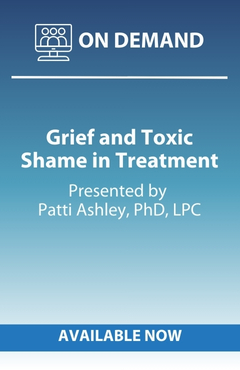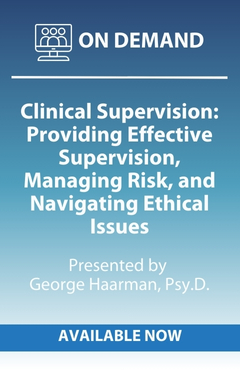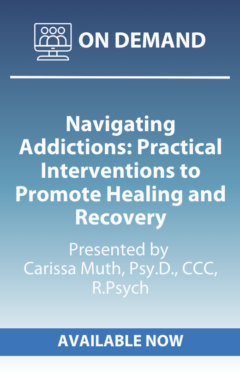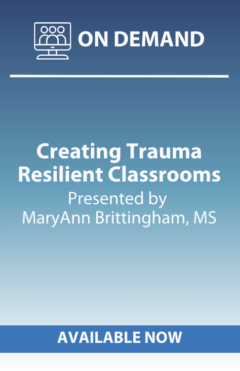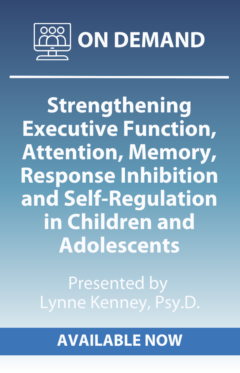Description
This workshop is on-demand, content will be available immediately after purchase.
Footage and all course content (certificate, videos, quiz) will be available until July 11, 2025. Extensions cannot be granted under any circumstances.
Registration will close on July 7, 2025.
Grief and shame are sometimes misdiagnosed and misunderstood in treatment. The American Psychological Association is continuously updating the definition of grief. Shame is only briefly mentioned in the DSM-V as a self-conscious effect related to depression. Conflicting diagnoses and a sometimes-prevalent discomfort and misinterpretation of the deep pain related to grief can activate toxic shame in the nervous system.
Toxic shame is an overwhelming feeling of being tragically flawed and unworthy of love and belonging. Some shame inducing situations related to grief might include clients feeling like they should have been able to prevent a death, particularly in the case of suicide; or clients being talked out of their feelings and told to move on. These and other subtle messages can exacerbate toxic shame. Identifying and treating the implicit and non-verbal experiences of grief and shame is challenging because coping behaviors can mask the true underlying affects.
If grief isn’t fully expressed it can stay stuck in the body memory as unintegrated trauma, influencing individuals much like PTSD. Current trauma research reveals how the body holds the memory of implicit toxic shame and grief like trauma. Recognizing and working with the autonomic nervous system’s responses to grief and shame can be helpful when supporting someone through loss.
This workshop will pinpoint the relationship between grief and toxic shame. You will learn how to identify the subtle cues of unexpressed grief and toxic shame. You will also learn person-centered, right-brain, relational techniques to help your clients grieve losses to completion and release core shame. Therapeutic empathy techniques that contribute to neuroplasticity in the right brain and support the grieving process will also be explored.

